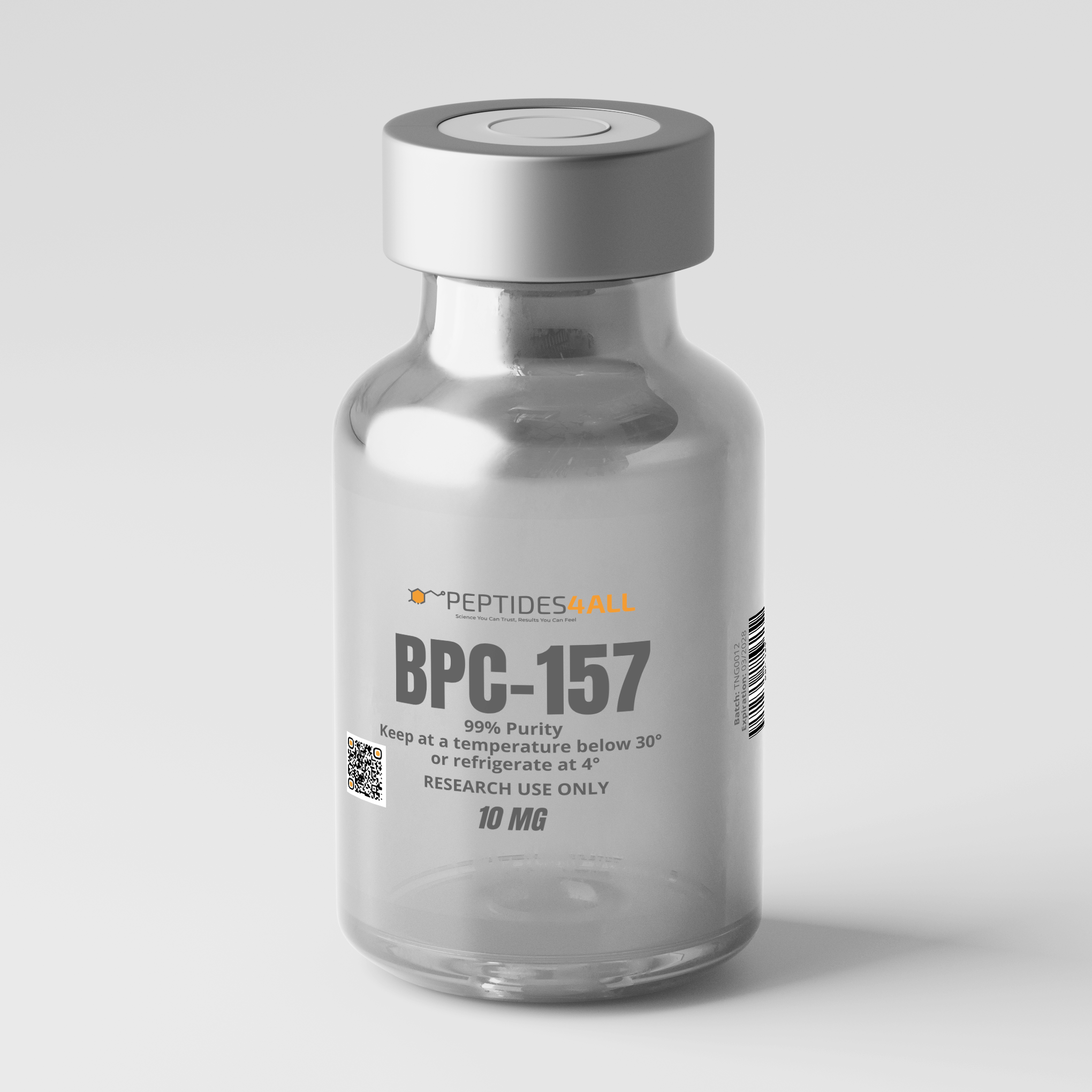CAS Number: 137525-51-0
Sequence: Gly-Glu-Pro-Pro-Pro-Gly-Lys-Pro-Ala-Asp-Asp-Ala-Gly-Leu-Val
Chemical Description
BPC-157 is a synthetic 15-residue peptide containing a partial sequence of the human Body Protection Compound. It is chemically distinguished by its high stability in aqueous solutions and resistance to enzymatic hydrolysis. Biochemically, BPC-157 interacts with the Nitric Oxide (NO) system and the VEGFR2 signaling pathway. It is extensively studied for its role in modulating the phosphorylation of Focal Adhesion Kinase (FAK) and Paxillin, which are critical proteins for cytoskeletal organization and cell motility in vitro.
Research Applications
This compound is strictly for laboratory research use in the study of:
- Angiogenic Signaling: Investigation of the transcriptional upregulation of Vascular Endothelial Growth Factor (VEGF) and subsequent endothelial tube formation in HUVEC models.
- Fibroblast Kinetics: In vitro analysis of cell migration rates using scratch-closure assays to model extracellular matrix remodeling.
- Nitric Oxide Modulation: Research into the peptide's influence on the NO-cGMP pathway and its effect on cellular cytoprotection markers under oxidative stress.
Technical Specifications
- Molecular Formula: C62H98N16O22
- Molecular Weight: 1419.5 g/mol
- Purity: >99% (determined by HPLC)
- Appearance: Lyophilized White Powder
- Format: 10mg Vial
Presentation & Handling
- Form: Supplied as lyophilized peptide in sterile vial.
- Reconstitution: Use bacteriostatic water or 2% procaine; swirl gently (do not shake vigorously).
- Storage: Store at –20 °C, protected from light and moisture. After reconstitution, use according to research protocols and handle under sterile conditions.
Disclaimer: For Research Purposes Only
This content is provided strictly for laboratory research purposes and does not constitute an endorsement or recommendation for any non-laboratory application. The information provided regarding specific peptides is for educational and informational purposes only and must not be construed as medical, clinical, or legal guidance, nor as an encouragement for use in humans or animals.
Peptides described here are solely for use in structured scientific study by qualified researchers. We advise consulting with laboratory safety officers or research experts prior to handling these materials. The expectation of responsible, ethical utilization of this information for legitimate investigative and scholarly objectives is paramount. This notice governs all content on this site.
